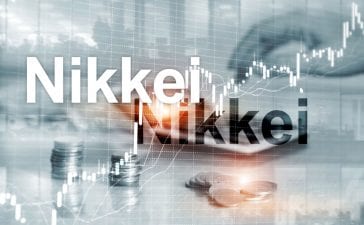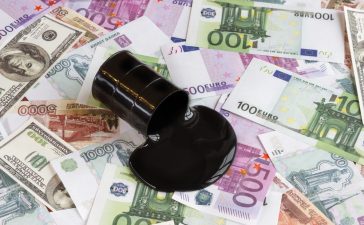The Dow Jones industrial average closed up 772 points, the Standard & Poor’s 500 index spiked nearly 91 points, while the Nasdaq composite added over 203 points
Wall Street bounced back Wednesday as investors sifted through an array of coronavirus developments and got a sudden reminder that it is an election year.
Following an opening-bell pop, U.S. stocks extended their gains after Sen. Bernie Sanders, I-Vt., ended his presidential campaign, clearing the path for former Vice President Joe Biden at the top of the Democratic ticket. A Sanders presidency never sat well with Wall Street; the 78-year-old democratic socialist is highly critical of corporate America, and his agenda – including Medicare-for-all, tuition-free public college and a wealth tax – raised fears of higher taxes and regulations.
The Dow Jones industrial average closed up 772 points, or 3.4%, at 23,426.43. The Standard & Poor’s 500 index spiked nearly 91 points, or 3.4%, to 2,749.98, while the tech-heavy Nasdaq composite added 2.6%, or more than 203 points, to settle at 8,090.90.
Biden is widely seen as the more markets-friendly candidate, said Chris Zaccarelli, chief investment officer for Independent Advisor Alliance, in comments emailed to The Washington Post. But markets have already priced in Biden’s likely nomination, hence the relatively mild reception. After Biden’s stunning Super Tuesday victory, the Dow spiked 1,200 points.
It’s a reminder that this is an election year, Zaccarelli said. In four to five months, Wall Street will be focusing on the 2020 Election “and the implications it will have for next year and the three years beyond that.”
The turnaround comes after the three major U.S. indexes soared to great heights Tuesday, only to stumble to a nearly flat finish after New York, the epicentre of the U.S. outbreak, announced 731 deaths overnight, its greatest one-day count.
In the past 24 hours, more than 1,850 coronavirus deaths have been confirmed in the United States – a single-day record for any country – while Wuhan, China, the city where the first covid-19 diagnoses emerged, reopened after nearly 11 weeks in lockdown. Meanwhile, European Union finance ministers failed to reach an emergency deal to rescue the bloc’s pandemic-battered economies.
The U.S. has more than 420,000 confirmed coronavirus cases and more than 14,000 deaths according to Johns Hopkins data. The disease is infecting and killing black Americans at an alarmingly high rate, according to a Washington Post analysis.
At least 40 states have issued stay-at-home orders, as social distancing has shown itself to be the best line of defence against the highly contagious disease. But it’s also thrown the U.S. economy off-course: More than 10 million Americans filed jobless claims the last two weeks of March, a record-shattering spike that eclipses highs set during the financial crisis.
With China showing signs of normalcy and Europe reporting signs of improvement just as the pandemic intensifies in the U.S., investors must choose whether to focus on positive developments overseas or the rising tolls domestically.
On Tuesday, President Donald Trump removed the inspector general who was supposed to oversee the administration’s management of a $2 trillion stimulus package, which has seen a rocky rollout. Many small-business owners are reporting delays in securing loans, without which many will have close their doors permanently. The U.S. Treasury is preparing to ask Congress to provide an additional $250 billion to a small-business relief program that is overwhelmed by demand.
Meanwhile, the Internal Revenue Service has warned the $1,200 relief checks may not reach many Americans until August or September if they haven’t already provided direct-deposit information to the government.
With still no major secondary outbreaks in Asia, the global economy might survive the pandemic without a full-blown recession, Gorilla Trades strategist Ken Berman wrote in commentary. Despite the positive news, the pressure on the most-affected sectors will likely remain strong throughout the year, and according to most analysts, a V-shaped recovery is highly unlikely.
Investors around the globe struggled to parse the shifting tides in the pandemic. Asian markets declined broadly Wednesday, with the exception of Japan’s Nikkei 225, which gained more than 2.1%. European markets also declined across the board, after fresh economic projections warned that the powerful German economy could contract nearly 10% in the second quarter due to the pandemic and lockdown costs.
The 10-year U.S. Treasury yield rose in early trading as investors turned to riskier investments. Yields rise as bond prices drop. Gold, a safe-haven in times of turmoil, was trading down more than .3%.
Oil prices also edged higher as investors hoped major oil producers would agree to production cuts in a meeting later this week. The meeting had been postponed amid rising tensions between Russia and Saudi Arabia. The two giants are embroiled in a price war that has caused a global oil glut amid cratering demand from the pandemic.
Brent crude, the global oil benchmark, was up nearly 0.5% to trade at $32.08 a barrel. West Texas Intermediate jumped 3.6% to $24.48 a barrel.





